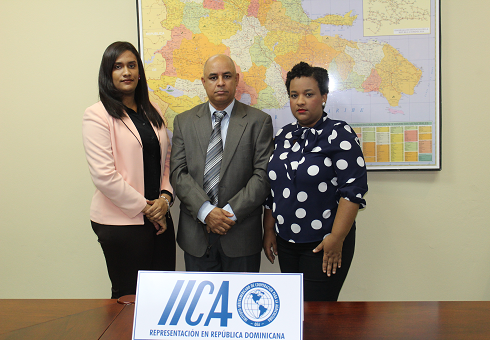The Dominican Republic Component of the Central American Program for the Integrated Management of Coffee Roasted Coffee (PROCAGICA-RD), funded by the Delegation of the European Union in the Dominican Republic (DUE-RD), which began its activities in January of this year presented its Annual Operational Plan to the members of the Technical and Advisory Committee of PROCAGICA-RD.
The Dominican Republic Component of the Central American Program for the Integrated Management of Coffee Roasted Coffee (PROCAGICA-RD), funded by the Delegation of the European Union in the Dominican Republic (DUE-RD), which began its activities in January of this year presented its Annual Operational Plan to the members of the Technical and Advisory Committee of PROCAGICA-RD, composed of representatives of the Ministry of Agriculture (MA), the Ministry of Environment and Natural Resources, the Delegation of the European Union Dominican Republic, the General Directorate for Multilateral Cooperation (DIGECOOM), the Dominican Coffee Council (CODOCAFE) and the Delegation of IICA in the Dominican Republic, who chairs the Committee.
The objective of the project is to contribute to addressing climate change and its environmental effects through the adoption and implementation of measures to adapt, mitigate and reduce the risk of environmental and climatic disasters in coffee areas in the Dominican Republic. Of the country’s 7 provinces: Independencia, Santiago Rodríguez, Dajabón, Elías Piña, Azua, San Juan de la Maguana and Bahoruco, improving their capacity for resilience in the face of possible adverse conditions caused by the phenomenon of climate change.
The project is implemented under three components focused on the support of three types of beneficiaries: a) Associated coffee growers and producers, b) Coffee producer’s organizations, c) Local and national institutions working on the coffee chain. The three components of the project are: 1) Transfer of technologies to small and medium coffee producers; 2) implementation of an Early Warning and Market System; and 3) strengthening of associations of producers and institutions linked to the coffee subsector.

Ing. Mistral Valenzuela, Asistente Técnica-Administrativa.
Ing. Amadeo Escarramán,Coordinador Unidad Coordinadora del Proyecto.
Lic. Adalgisa Polanco, Asistente Financiera.
During April, the Project Coordinating Unit was set up, its staff was incorporated and the preparation of the 2017 Annual Operational Plan for the project was immediately initiated and submitted to the Technical and Advisory Committee of PROCAGICA-RD. This plan contemplates supporting the production of coffee in about 250 ha for both the renovation plan and the maintenance and diversification of coffee plantations; In addition, the training of more than 35 extension workers so that they are able to provide continuous assistance to the producers in the issues related to the production and commercialization of coffee. For the current year, the plan also proposes to develop a baseline diagnosis in the intervention areas as well as to assess the status of the components of the early warning system managed by CODOCAFE.
During this first year of execution, motorcycles and the necessary equipment will be acquired to support the process of transfer of technology to technicians and producers and information will be collected on the actors involved in the territories and the demands of the populations in the intervention area.
The official launch of the project will be the next May 10th, with this launch as a main purpose to make known to the public the nature, scope and importance of the implementation of the project in the country.











